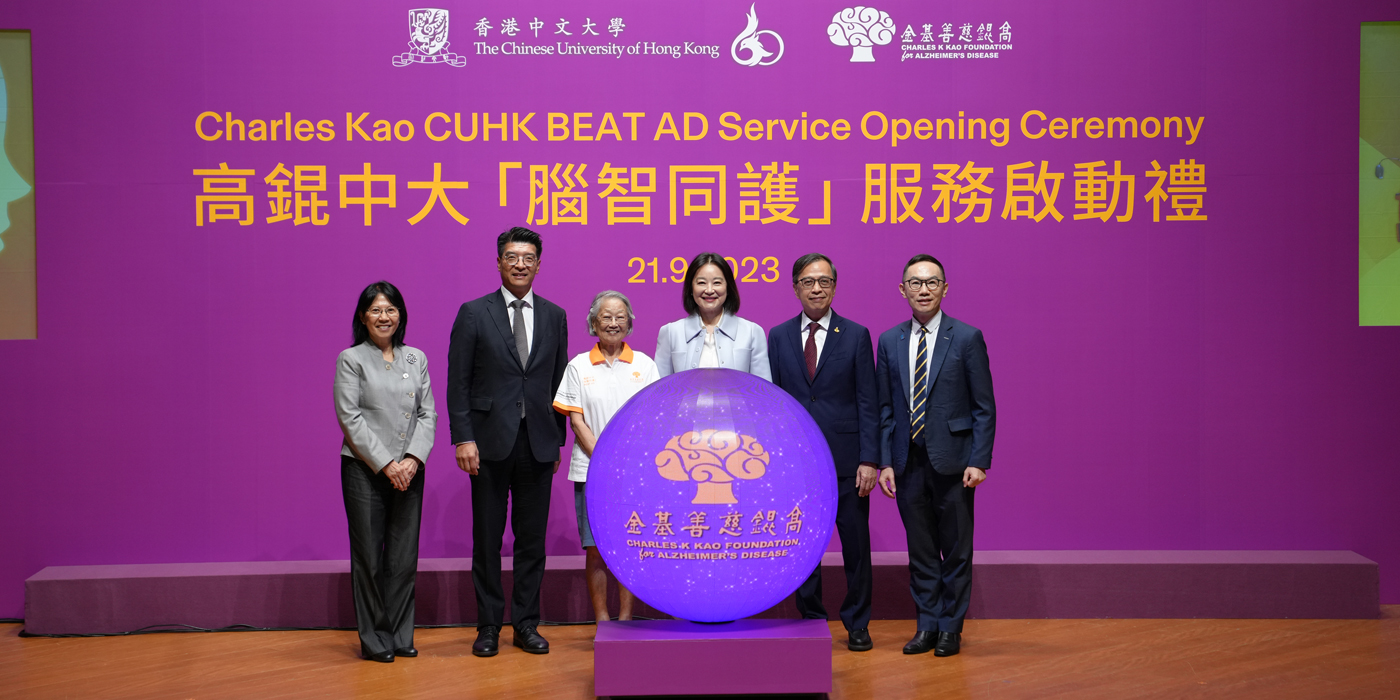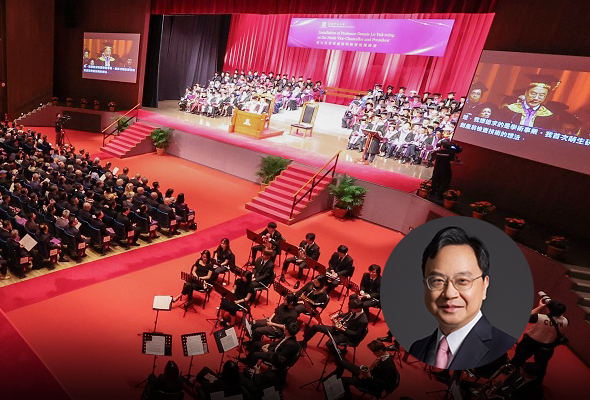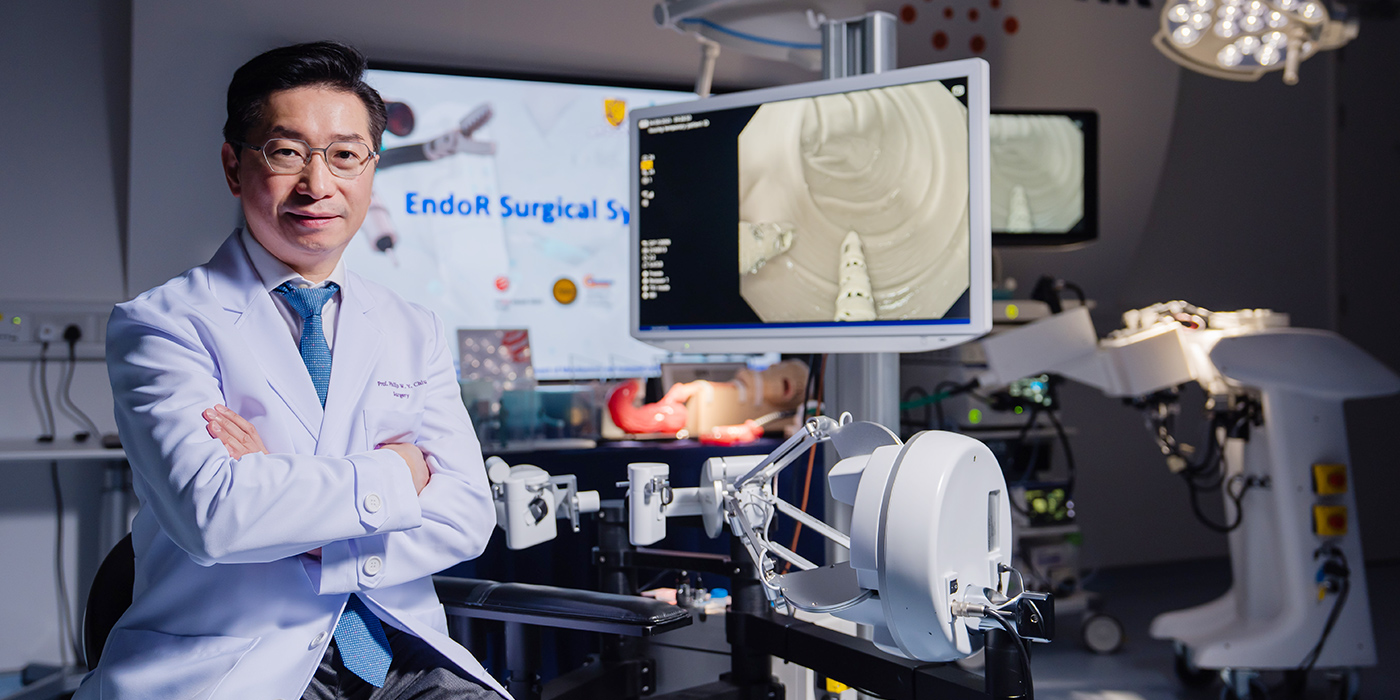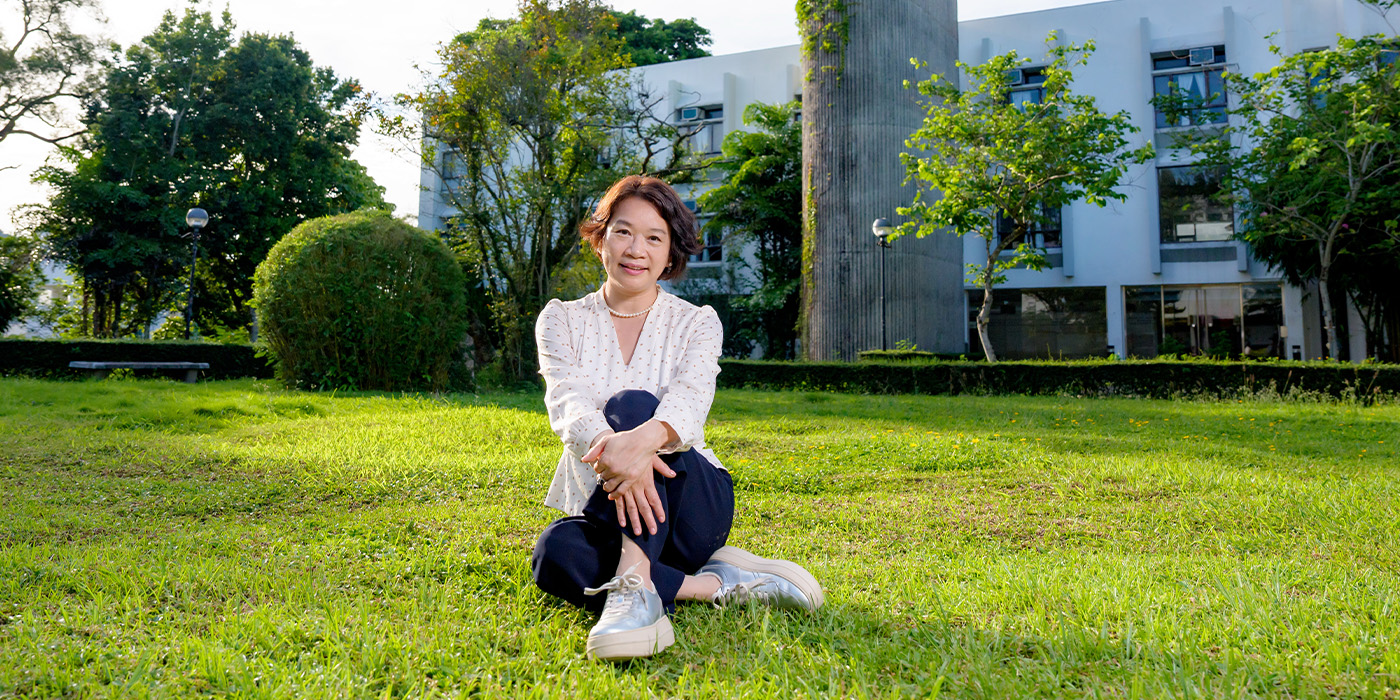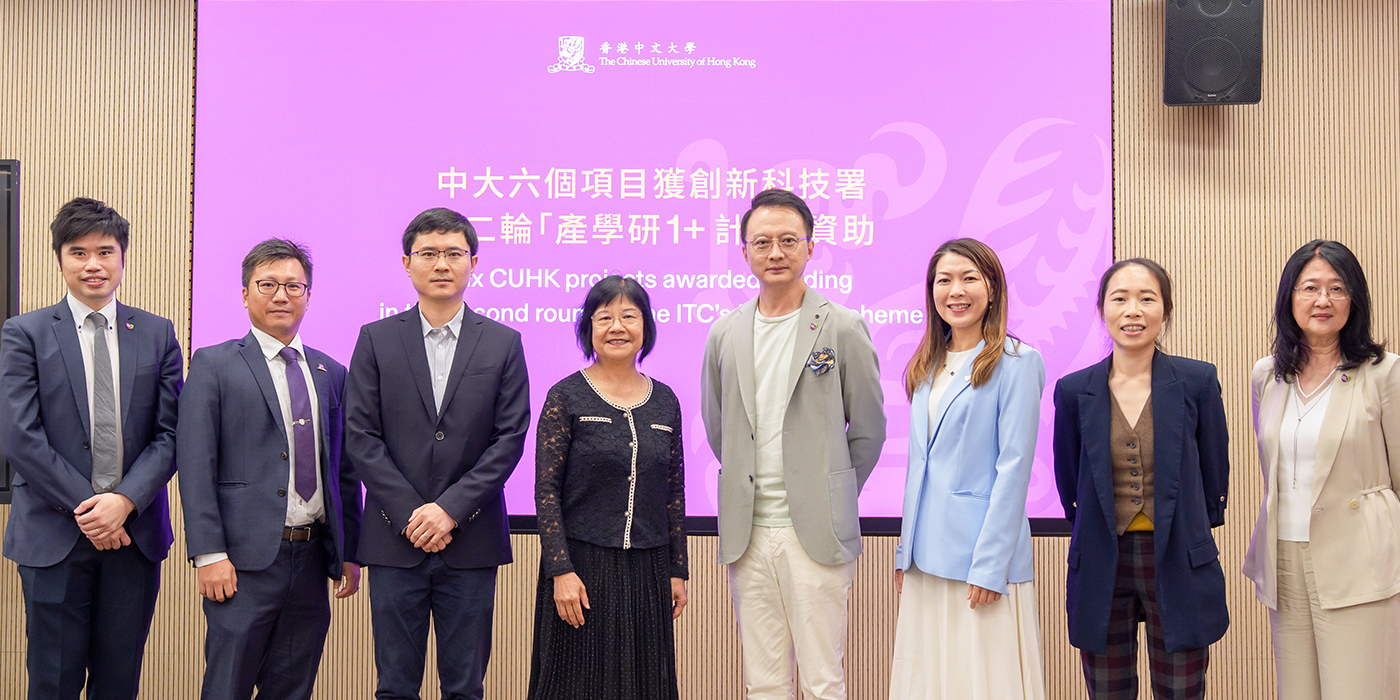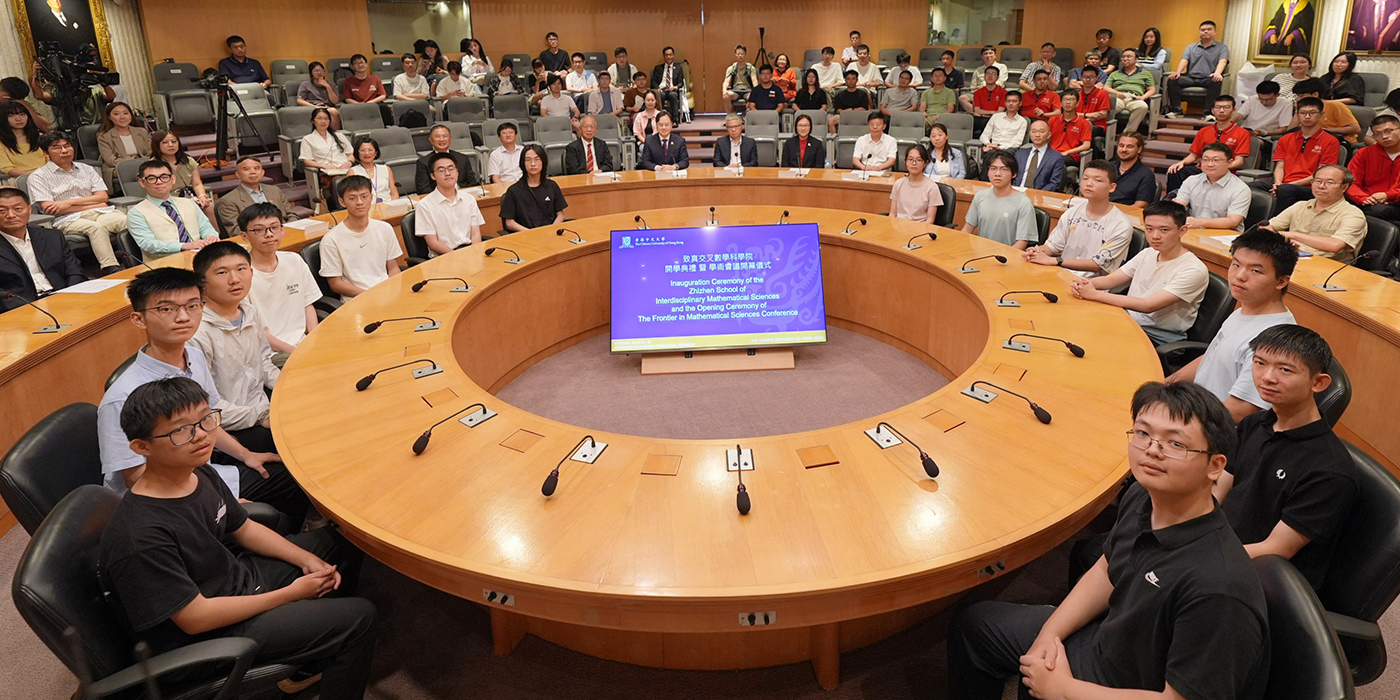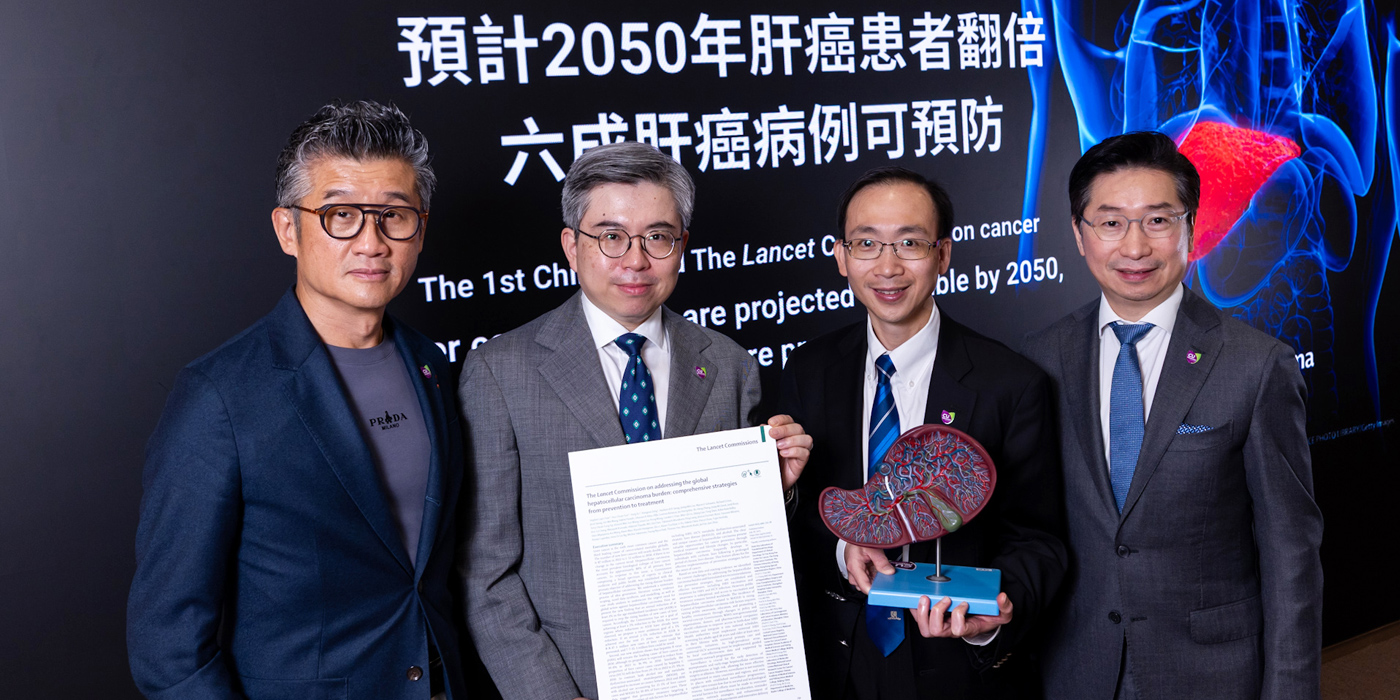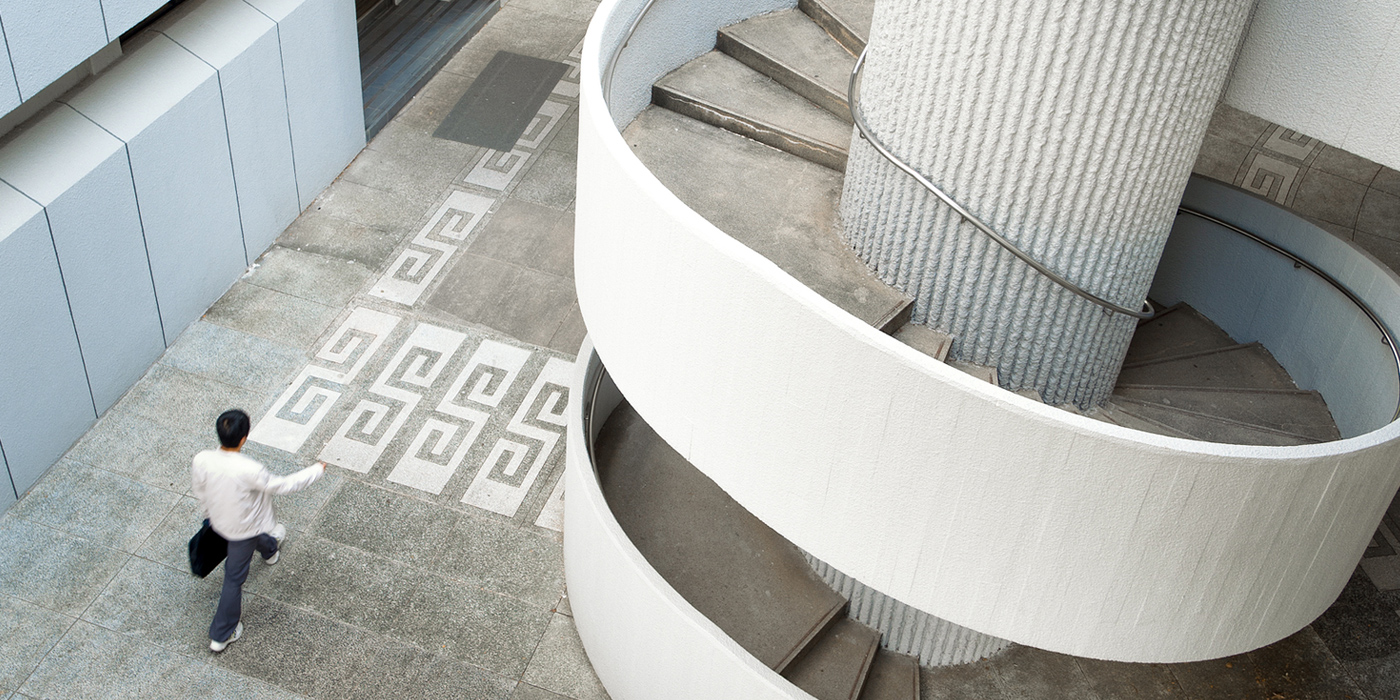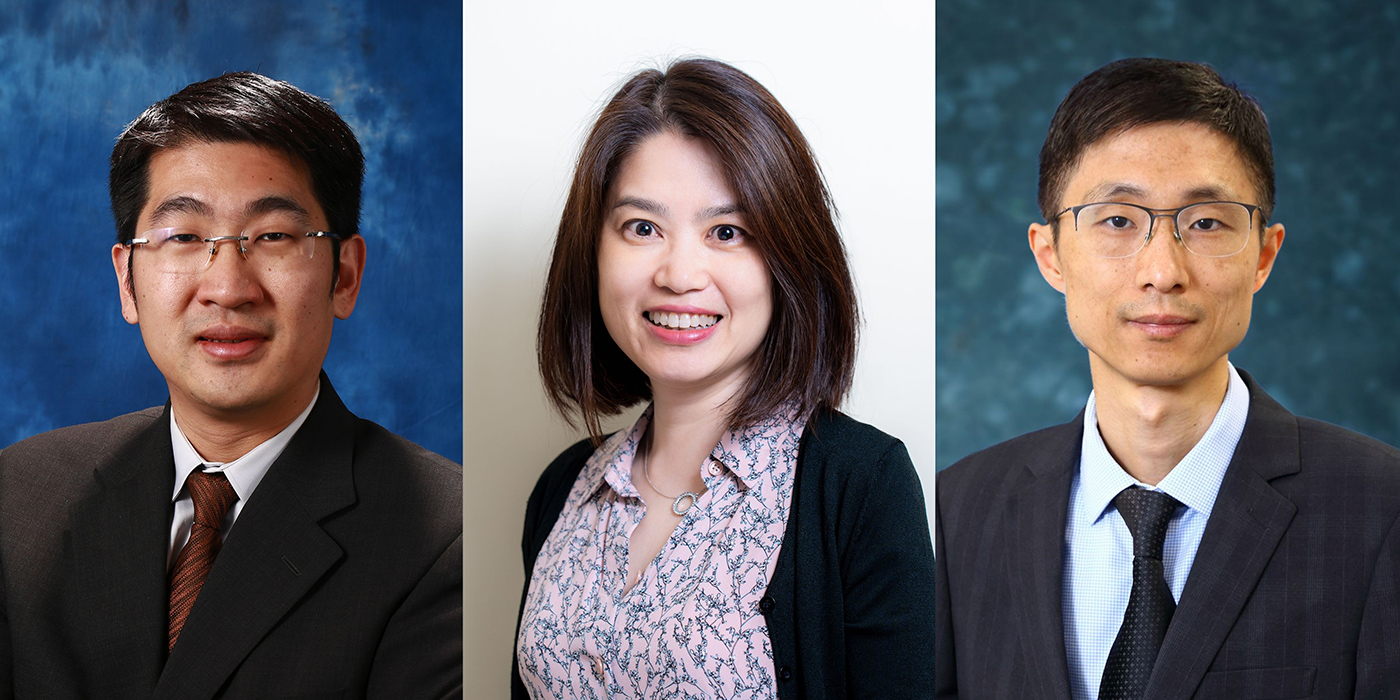(From left) Dr Chiu Ha-ying, Dr Pang Fei-chau, Mrs Gwen Kao, Dr Brigitte Lin Ching-hsia, Professor Alan K.L. Chan and Professor Vincent Mok at the launch event for a screening initiative to assist with early diagnosis of dementia
The master’s light shines on
Free and comprehensive Alzheimer’s disease screening launched for local community
Former CUHK Vice-Chancellor Professor Charles K. Kao, the Nobel prize-winning “father of fibre optics,” suffered from Alzheimer’s for years before his passing in September 2018. By then, his wife Gwen Kao had long been campaigning to raise community awareness about the disease, which is the most common cause of dementia. “Seeing how loved ones change from someone who is highly intelligent, alert and clever to a completely different person is seriously heartbreaking,” says Mrs Gwen Kao, chairman of Charles K. Kao Foundation for Alzheimer’s Disease (CKKF).
High speed-Internet, inexpensive long-distance phone calls, and video-conferencing technologies would be impossible without Professor Kao’s discovery that light can be transmitted through fibre optic cables. When the jury of the Royal Swedish Academy of Sciences awarded him the 2009 Nobel Prize in Physics, they called Professor Kao the “master of light”. Today, that light shines on campus in new ways.
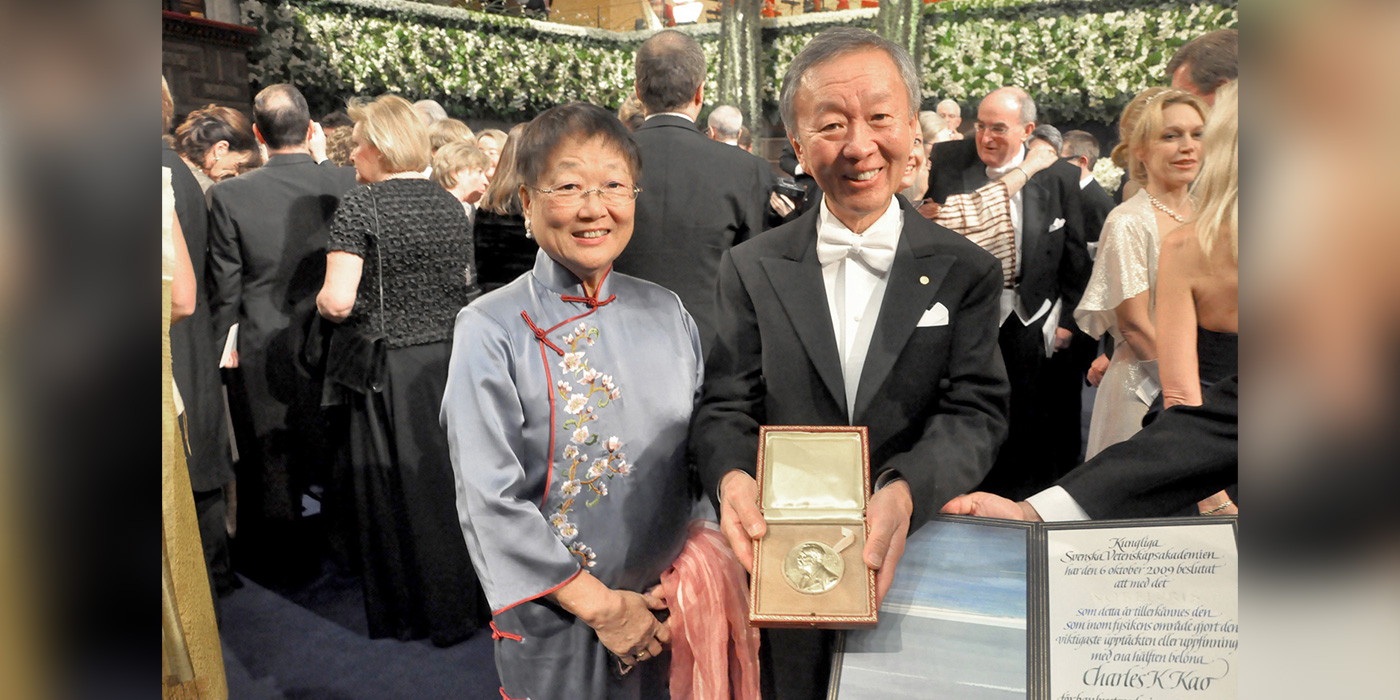
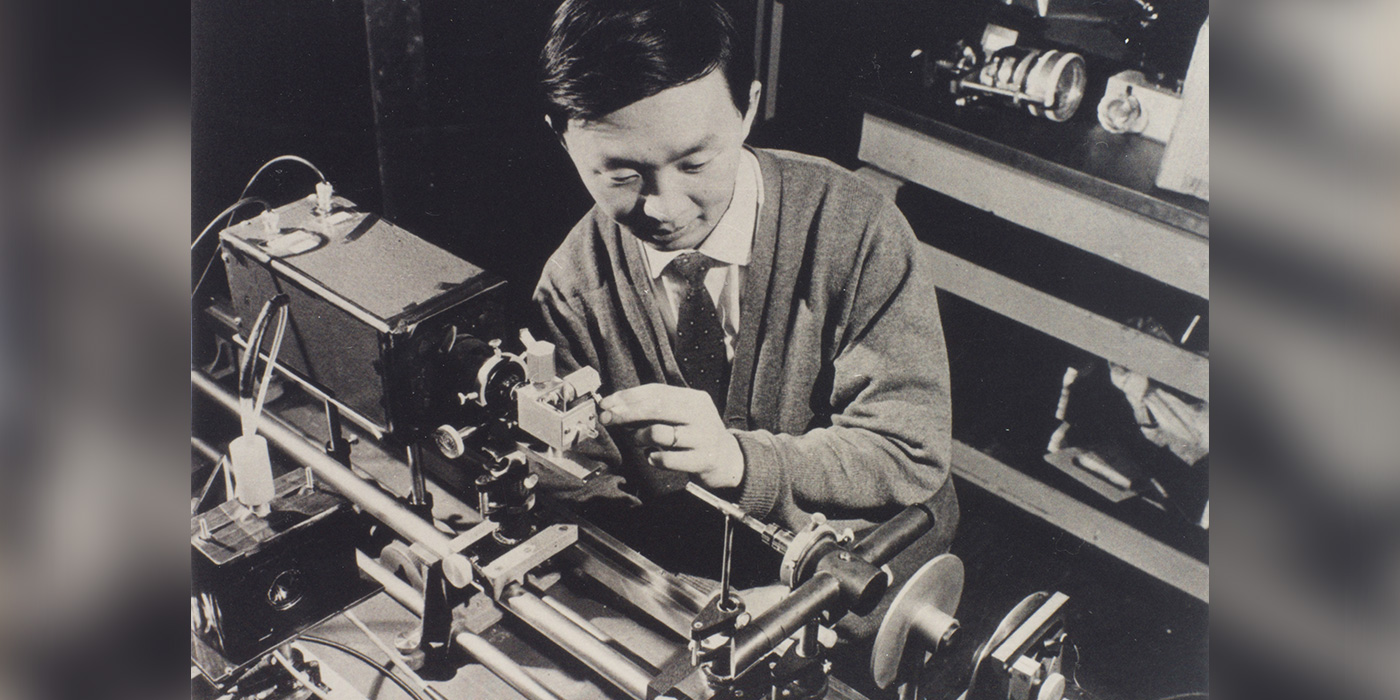
Mrs Kao founded CKKF in 2010 having experienced first-hand limited understanding in the community about Alzheimer’s Disease and the challenges it presents. The non-profit organisation seeks to raise awareness and understanding of dementia, to improve service provision, and to support those affected by the disease, especially their caregivers.
Loss of self
In Hong Kong, approximately one in 10 individuals aged 70 or above suffer from dementia, a degenerative brain disease affecting memory, thinking, behaviour and emotions. Patients gradually lose bodily functions, especially cognitive ability. Alzheimer’s disease accounts for approximately 60-80% of all dementia patients worldwide.
As earliest observable symptoms of Alzheimer’s are often mistaken to be related to age or stress, and as the disease develops for an indeterminate period of time before becoming fully apparent, patients often miss the golden window for early treatment. At an advanced-stage Alzheimer’s, symptoms may manifest as emotional instability and loss of language and body-control.
| Typical age-related changes | Signs of Alzheimer’s disease/ dementia |
| Making a bad decision once in a while | Poor judgment and decision-making ability |
| Missing a monthly payment | Showing difficulties in thinking and calculating |
| Forgetting which day it is but being able to recall it later | Losing sense of time, direction and location |
| Sometimes forgetting which word to use | Showing difficulties in verbal communication |
| Losing things from time to time | Misplacing things and being unable to retrace steps to find them |
Comparing memory loss due to ageing with Alzheimer’s disease (Source: Charles K. Kao Foundation for Alzheimer’s Disease)
Prevention is better than cure
This year, World Alzheimer’s Day was marked on 21 September. In partnership with CKKF, the University inaugurated the Charles Kao CUHK BEAT AD Service (Brain HEAlth Service for PrevenTion of Alzheimer’s Disease) to provide Alzheimer’s disease screening to Hong Kong residents aged 60 to 80. This comprehensive, community-based service will be free for 18 months and is expected to benefit some 800 participants.
With a donation from Dr Brigitte Lin Ching-hsia, the service aims to mitigate the growing burden of dementia by detecting Alzheimer’s disease at an early stage and slowing progression through positive lifestyle changes and vascular risk management.
Dr Lin, BEAT AD Patron and Ambassador, said: “Hong Kong enjoys the world’s longest life expectancy, but with the associated problems that such an ageing population poses. The service will identify elderly individuals with early symptomatic Alzheimer’s disease or who are at risk of the disease and implement tailor-made preventive measures. We hope that it will benefit the well-being of patients, families and the community.”
Promotional video of the Charles Kao CUHK BEAT AD Service
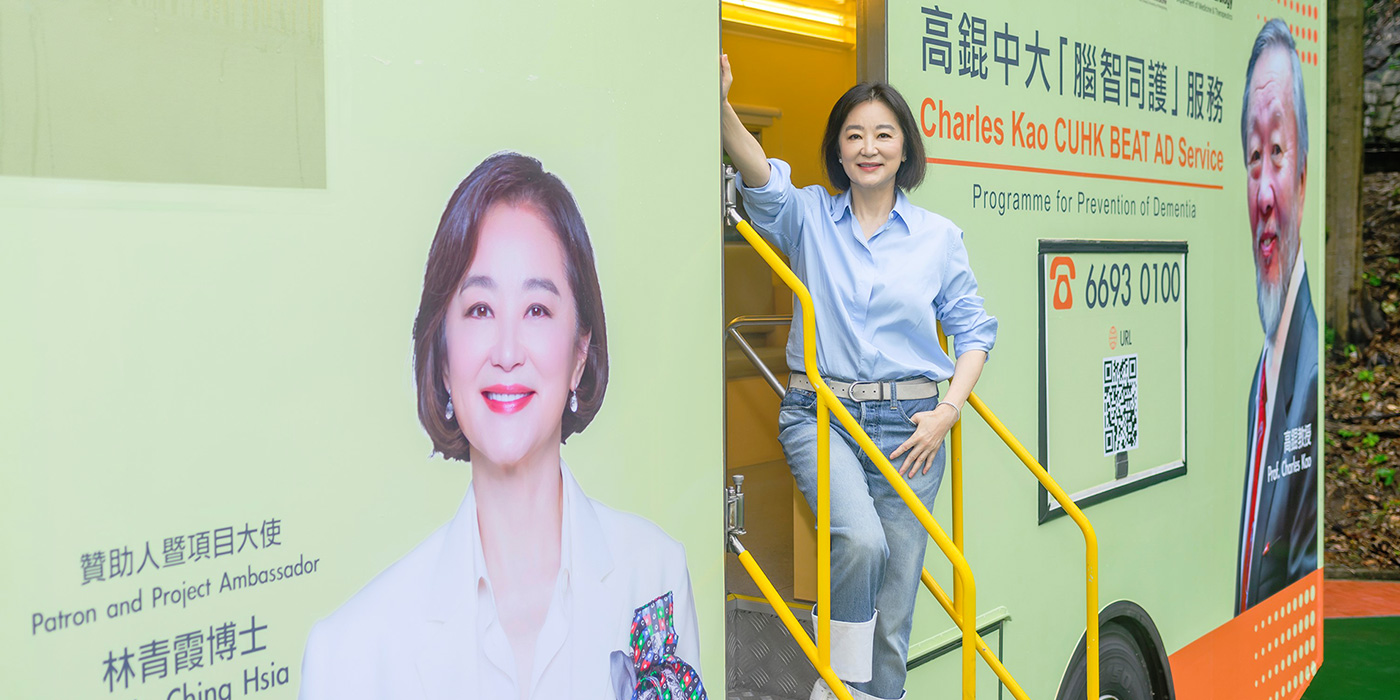
To participate in the service, eligible users need to complete an online survey on the BEAT AD website. Those who demonstrate suspected early symptoms will be contacted for a face-to-face clinical and cognitive assessment by a trained nurse. At a follow-up visit one to three weeks later their assessment results will be discussed and tailor-made preventative measures will be formulated.
At the launch event, Dr Pang Fei-chau, Commissioner for Primary Healthcare, Health Bureau of the Hong Kong government, said: “We are facing major challenges brought on by a rapidly ageing population and an increase in the prevalence of chronic neurological diseases. With the Primary Healthcare Blueprint shifting the emphasis of the healthcare system to a prevention-focused, community-based system, the government is actively engaging all sectors to develop comprehensive, sustainable, people-centric primary healthcare services in the community.”
The eye is the window
To make an accurate diagnosis of Alzheimer’s disease based on cognitive tests and structural brain imaging is challenging. However, pathologic diagnostics of the disease, such as an amyloid-PET scan or testing of cerebrospinal fluid collected via lumber puncture, is invasive and less accessible.
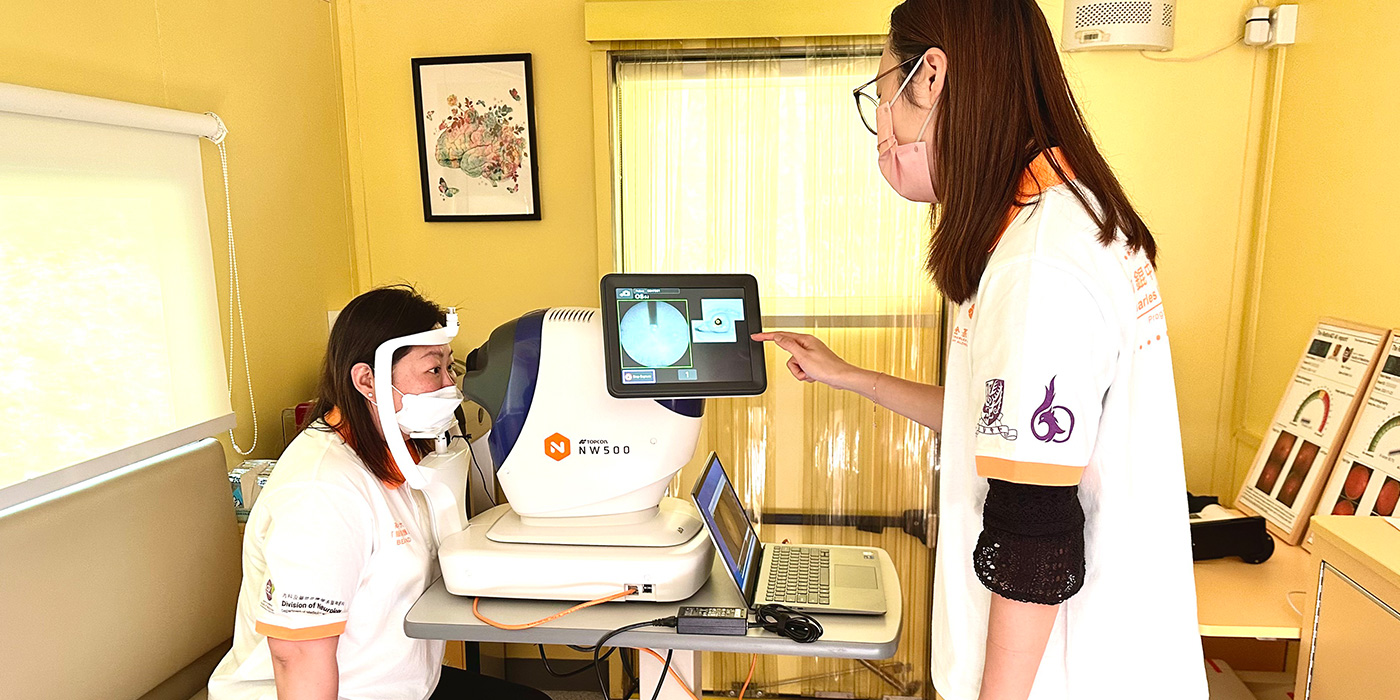
The retina is an extension of the central nervous system; thus, the eye is therefore a window that can show degenerative changes in the blood vessels and nerves of the brain.
Fundus photography is a technology used to capture diagnostic images of the eye, including the retina. The digital fundus camera on the BEAT AD truck applies the world’s first AI model, developed at CUHK, that can detect Alzheimer’s disease solely through taking images of the retina. This cutting-edge AI application is pioneered by an international team led by the Faculty of Medicine. It is a non-invasive and cost-effective approach to screen people at high risk of Alzheimer’s disease.
Professor Vincent Mok Chung-tong, Co-Director of the service and Mok Hing Yiu Professor of Medicine, jointly explained: “Many factors that cause irreversible brain health decline and Alzheimer’s disease are potentially modifiable. Leveraging CUHK’s expertise in dementia research and clinical care, we have developed our innovative screening. We believe this prevention approach can create tremendous social impact by enabling early diagnosis and intervention.”
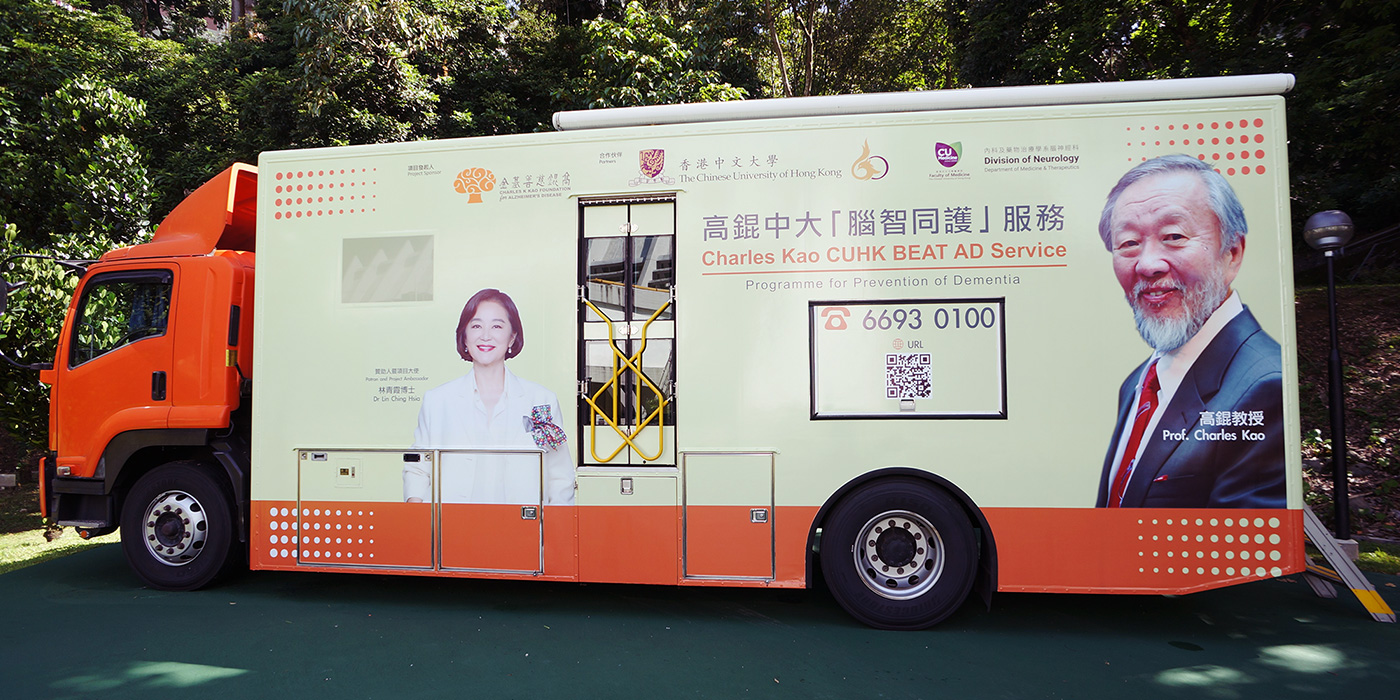
Details of the Charles Kao CUHK BEAT AD Service
| Eligibility | Hong Kong citizens aged 60 to 80 |
| Venue | Outside Chung Chi Tang at Chung Chi College (Five-minute walk from the University MTR station) |
| Time | Mondays to Fridays, except public holidays 9:00am – 5:00pm |
| Website | https://neurology.mect.cuhk.edu.hk/beatad/ |
| Fee | This service will be free for the public for 18 months from September 2023 to March 2025. |
| Remark | Prior online booking is required. Due to overwhelming responses, all reservation slots are currently full. The reservation system will open again at 9:00 am on 16 October 2023 for reservations from December 2023 to February 2024. **Early diagnosis and treatments are important to delay the disease. If you have experienced symptoms of cognitive decline but cannot make an online appointment, please seek professional medical advice as soon as possible. ** |
By Jenny Lau

